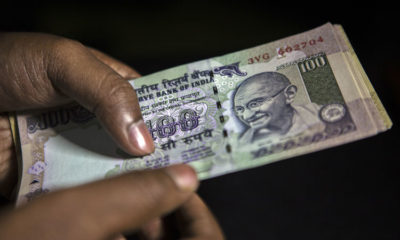- Nigeria Tops India’s Africa Export with $9.949bn
Nigeria has continued to outpace other African countries in export to India with $9.949 billion in exports last year.
This represents 31.4 per cent of the total export to India from Africa.
Head of Chancery at the High Commission of Indian, Lagos, Mr. Jagdeep Kapoor, who stated this at the Indian products and services exhibition held in Lagos, called on Indians to invest in Nigeria adding that relations between both countries has existed for decades.
He stated that the recent visit of the Indian Vice President to Nigeria has also given a boost to Nigeria, Indian bilateral relations.
According to him, “India as we know is Nigeria’s largest trading partner. Total trade between the two countries in the financial year 2015-16 was $643.3 Billion. Crude oil is the largest item exported from Nigeria to India, while Vehicles, Pharmaceutical products and Machinery have been the largest items exported from India to Nigeria. India exported about 419 million dollar worth of vehicles including parts and accessories to Nigeria during the financial year 2015-16. Similarly about 393million dollar worth of Pharmaceuticals were exported from India to Nigeria and roughly 267 Million dollar worth of machinery and appliances.
“You will notice that these are the three main products we have tried to highlight in the present exhibition through the individual companies participating today. Telecom, Hospitals, Education, Insurance and Banking occupy the leading positions in the services sector, which again are visible in this Exhibition. This year the plan is to consolidate on what we are already exporting to Nigeria and maybe next year we will diversify into other fields like software, hospitality, construction and entertainment. A large Nigerian delegation led by Minister of Industry, Trade & Investment visited India to attend the 11th CII-EXIM Bank Conclave held in New Delhi on 14-15 March, 2016 as a partner country.”
While calling on more Indian companies to come to Nigeria to do business, he said: “The High Commission can only pave the way. It is for the companies participating today to consolidate on the opportunities presented through this Exhibition and move forward. Gains made at such exhibitions are not generally tangible in the beginning, but believe me; they definitely translate into showcasing your capabilities and with time and perseverance help in reaching the objective of increased trade and business. I have said this at different fora that it is the Indian exhibitors who are the true Ambassadors. Guests will view India through the products and services you display here today and form an opinion about India based on what you present. My humble request is to keep the Indian flag flying high and make us all Indians proud.”
Minister of Power, Works and Housing, Babatunde Fashola had while speaking at the West Africa-Indian Trade and Economic Forum recently revealed the possibility of increase market access opportunities between India and countries within the sub-region, in terms of improved terms of trade, would be imperative to increase production efficiency and competitiveness through infrastructural development.
He said it was important and necessary to address market access constraints and Non- Tariff Barriers (NTB) that hinder the free movement of goods and services across the region’s frontiers, as particular attention should be paid to the inherent supply side constraints in the West African Community in the course of the business forum.
“There is no doubt that there would be challenges to the implementation of the resolutions that may be reached at the end of this forum on issues such as finance, technical assistance and capacity building of the private sector. “We therefore enlist the support and cooperation as well as assistance of our development partners to governments and the private sectors of West Africa in this regard, “he added.


 Forex2 weeks ago
Forex2 weeks ago


 Naira2 weeks ago
Naira2 weeks ago
 Naira4 weeks ago
Naira4 weeks ago
 Company News4 weeks ago
Company News4 weeks ago
 Billionaire Watch1 week ago
Billionaire Watch1 week ago




 Naira2 weeks ago
Naira2 weeks ago




 Naira4 weeks ago
Naira4 weeks ago




 Naira1 week ago
Naira1 week ago



















